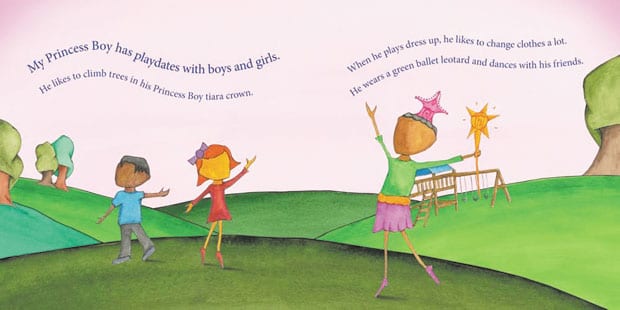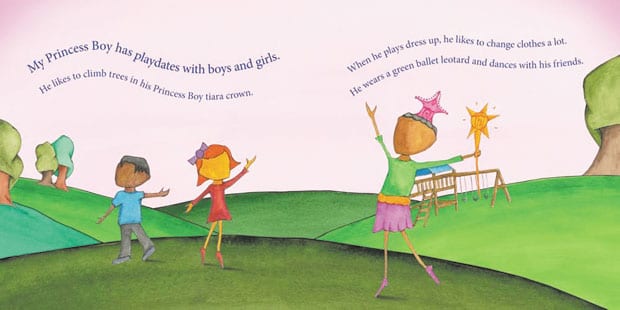Temper tantrums from county clerks are giving way to other types of protests against marriage equality

DAVID TAFFET | Senior Staff Writer
Rusk County Clerk Joyce Lewis-Kugle became the first elected official in Texas to resign rather than issue marriage licenses to same-sex couples.
Although others in her office were available to issue licenses, Lewis-Kugle offered her resignation on July 10. County commissioners accepted it on Monday, July 13 and appointed her chief deputy, Trudy McGill, as her successor.
Rusk County is in East Texas, east of Tyler and south of Longview. Henderson is the county seat.
No couples have applied for a marriage license in the county, and Lewis-Kugle hadn’t taken an aggressive stand against marriage equality as a few other clerks have done.
A second county clerk, Karen Irving from Live Oak County northwest of Corpus Christi, retired this week rather than issue licenses. To avoid any lawsuits, the county had been reporting it would issue licences as soon as it had software updates. Instead, it was protecting the retirement of its county clerk, who refused to comply with the law.
Lambda Legal attorney Ken Upton said he was surprised how busy he’s been since the marriage equality ruling, but looking back over the first few weeks following the SCOTUS decision, was happy how quickly things fell into place here and the other 13 new marriage equality states.
He noted that Louisiana is not only issuing marriage licenses across the state, but is about to begin issuing two-parent birth certificates to same-sex couples.
Maybe Texas, is too. Before the ruling, Texas had an automatic refusal letter that went out to same-sex couples who requested both names on the birth certificate. Now, Upton said, those requests are on hold. He didn’t know if the state was waiting for a software update to begin issuing two-parent birth certificates to same-sex couples, but something was happening.
Texas employees and retirees were adding spouses to their health benefits within hours of the ruling, but in some places county clerks in several places are grandstanding.
Kentucky has at least two holdouts. The state’s governor angrily urged them to issue or resign.
Citing her religious views, County Clerk Kim Davis in Rowan County, Ky., stopped issuing marriage licenses when four same-sex couples applied for marriage licenses in her office. The couples are suing her.
If the court rules in their favor, she must begin issuing or could be found in contempt of court and fined or sent to jail.
In Texas, 252 of the 254 counties are issuing marriage licenses or said they would if asked. Of the remaining two — Irion and Hartley — only one is committed to long-term defiance of the U.S. Supreme Court ruling.
Hartley County Clerk Melissa Mead is using a stalling tactic. She said she won’t begin issuing until a 25-day waiting period runs out. During that time, parties to a case decided by the Supreme Court can ask for a rehearing, something rarely granted. Hartley, in the Panhandle on the New Mexico border, reports no one requesting a license there.
In Irion County, west of San Angelo, County Clerk Molly Criner has stuck by her defiant refusal to issue, not that she’s been asked, either.
“To keep my oath to uphold the Constitution, I must reject this ruling that I believe is lawless,” Criner said in a press release.
Former state Rep. Glen Maxey said he had a couple planning to visit Criner’s office and prepared to file a lawsuit if a license isn’t issued.
Other than these few holdouts, the protest of same-sex marriage has moved beyond the county clerks offices.
In Hood County, County Clerk Katie Lang quickly changed her stand after being threatened with a personal lawsuit. The publicity surrounding her stance may have prompted a different kind of protest against LGBT-equality — a request to remove two children’s books from the Granbury library.
After receiving the request, librarians decided to keep My Princess Boy and This Day in June on the shelves.
The issue was appealed to the Hood County Commissioners Court, which discussed it on July 14.
Dallas Public Library District Manager Peter Coyl attended the meeting. He said the American Library Association sent commissioners copies of a 2000 court ruling written by U.S. District Court Judge Jerry Buchmeyer.
In that case, a group of 300 people in Wichita Falls, instigated by their pastor Robert Jeffress, complained about two children’s books on library shelves. Buchmeyer ruled that a group of “300 people with library cards” didn’t have “the right to censor” for the community.
Coyl said one woman said her 4-year-old saw the book and asked questions she was not prepared to answer. Another countered by telling the story of her own “princess boy” and said she wished she had the book to read to him when he was young.
One commissioner, who made clear he was not a fan of marriage equality, noted one of the books had been in the library four years without complaints. The commissioners didn’t take a vote, noting Buchmeyer’s ruling stands and the books remain in the Hood County library.
In Denton County, a different type of protest over marriage equality played out in the office of a justice of the peace.
Denton County Clerk Juli Luke began issuing marriage licenses on June 29. but that decision didn’t sit well with Justice of the Peace James R. DePiazza.
DePiazza had a choice. He could either perform weddings for any couple with a valid marriage license or not. What he can’t do is pick and choose.
Something that might have helped him decide is that J.P.s charge a fee. Unlike the license fee, which is split between the county and state, the money the J.P. charges goes directly into his pocket.
DePiazza doesn’t hate same-sex weddings — or the money he was making from them — enough to stop performing them. Instead, he came up with a new form that says he agreed to do their wedding even though he’s opposed to same-sex marriage.
By some reports, even straight couples have to sign the form.
Upton wondered if the form was legal, but said as long as everyone was treated the same, he’s not sure what grounds couples could file against the J.P. He pointed out there are other J.P.s available in Denton.
This article appeared in the Dallas Voice print edition July 17, 2015.

